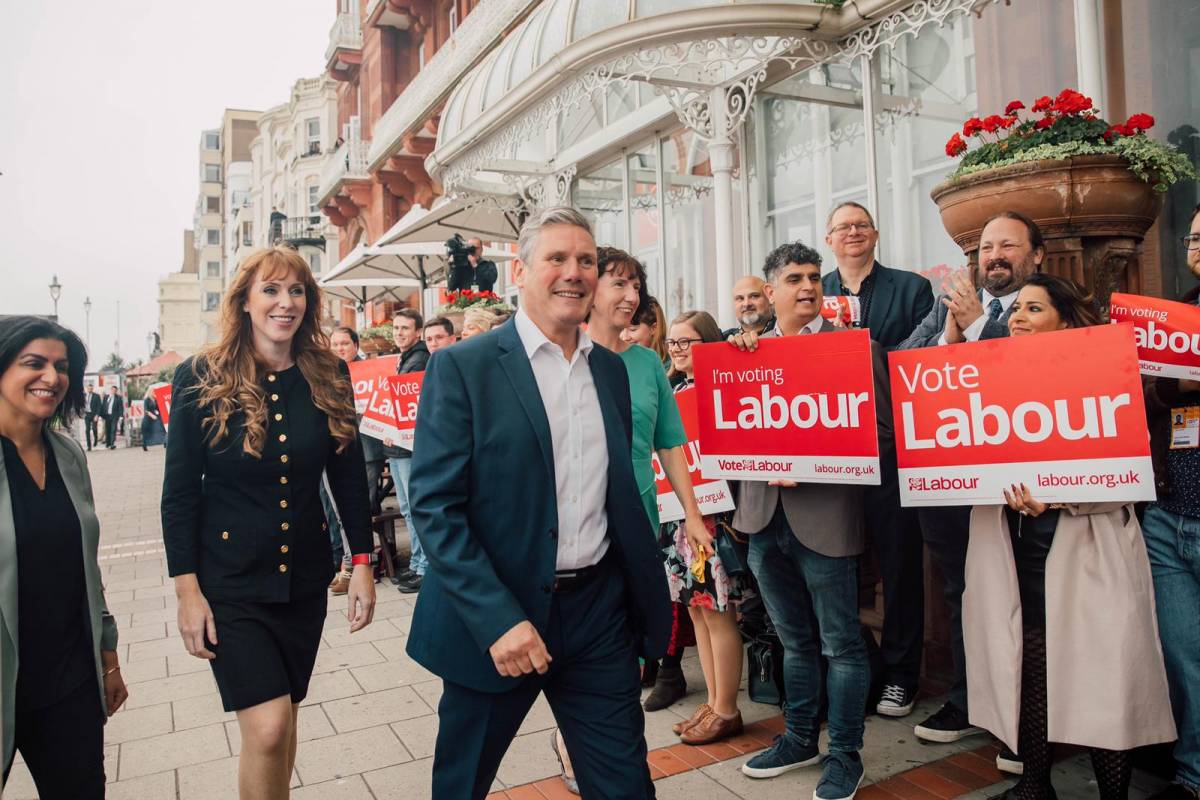Labour’s reputation in Delhi and among British Indian voters in the UK has slipped in recent years, because of the support by some in the party for the independence of J&K…reports Asian Lite News
Keir Starmer has promised to reset relations between the Labour party and India after years of tension between the two.
The Labour leader said on Monday that his party had made mistakes in its approach to relations with the world’s most populous country, and that it would seek closer ties if elected to power next year.
Labour’s reputation in Delhi and among British Indian voters in the UK has slipped in recent years, not least because of the support by some in the party for the independence of of Jammu and Kashmir. Some UK Indians have also complained that the party has focused more on poorer inner-city Pakistani and Bangladeshi communities than on them.
Starmer told those attending the UK-India Week conference: “In the past Labour gave the impression we could only see the lives of people in communities who needed our support. But my Labour party understands that what working people in every community need is success, aspiration and security.”
He added: “There are lots of issues in the Labour party where, over the last two years, we have openly taken the decision to change our party to look out to the world in a different way – and to recognise when it comes to India, what an incredible, powerful, important country India is … and to ensure that we have the right relationship as we go forward.”
Labour’s relationship with India, and with Indian voters, has suffered in recent years as the government in Delhi has pursued an increasingly rightwing nationalist agenda, while Labour has been accused of taking sides with Pakistan in the dispute over Kashmir. There are 1.9 million British Indians, making them the largest minority ethnic group in the UK, and a potentially important source of votes in swing constituencies.
In 2019, the party sparked anger among Indian groups when it passed an emergency motion at its annual conference calling for international observers to be allowed into the territory, which is the subject of dispute between India and Pakistan. The party then wrote a letter clarifying that it would not take sides in the dispute.
The incident accelerated a general drift by British Indian voters away from the Labour party. A study in 2021 found that in the previous decade the party had gone from 60% support among UK Indians to 40%, with Muslim voters far more likely to support Labour than Hindus.
Welcoming Starmer to India Global Forum, Founder and Chairman, Manoj Ladwa said, “Whilst British politicians will vigorously seek out every vote, the relationship with India is now of national strategic importance. We cannot and must not allow it to be held hostage to the vagaries of domestic politics.”
Encompassing 12 marquee events with 150 speakers and 2,000+ participants, ‘UK-India Week 2023’ brings together business leaders, policymakers, and thought leaders from India and the UK to discuss opportunities for further collaboration and growth between the two countries. UK-India Week 2023, described as a highly anticipated fixture in the bilateral calendar by Prime Minister Rishi Sunak, runs until 30 June 2023.
Indian-origin community in UK
According to the 2011 census of England and Wales, there were 1.4 million people of Indian origin residing in the UK, accounting for 2.5 percent of the overall population.

As a Carnegie Endowment for International Peace study noted in 2021, when Prime Minister Narendra Modi visited the UK in 2015, it was “A time when the British Indian community was growing in stature and showing signs of political evolution. Historically, survey data have suggested that British Indians—like most other ethnic minorities—have been staunch supporters of the left-of-center Labour Party.”
It cites a 2010 survey of ethnic minority voters in the United Kingdom, where 68 per cent of them favoured the Labour Party. Among other reasons, it can be attributed to the Conservatives’ opposition towards immigration and liberalising cultural norms.
Change in position
The Carnegie study said that in recent years, “extant survey data, as well as anecdotal evidence, have indicated that the community’s political leanings are shifting,” particularly the British Hindus.
Devesh Kapur, a professor at the Johns Hopkins School of Advanced International Studies, and Caroline Duckworth and Milan Vaishnav, at the South Asia Program at the Carnegie Endowment for International Peace, discussed this in a 2021 The Guardian article.
While noting the erosion of Labour support from Indian and Indian-origin voters in favour of the Conservatives, it added that Labour was still the choice for a majority (54 per cent) of those surveyed. However, this is a fall from previous years and many voters said they were undecided in their preference. They could then play a key role in influencing closely contested electoral seats’ results.
There are also variations across age and religion, with younger voters being more supportive of Labour. “A majority of Muslim and Sikh respondents would vote Labour in a snap election, but among Christians and Hindus the Conservatives would be the most popular party. Given Hindus’ relative demographic weight, Labour’s problem with British Indians is largely driven by the flight of Hindu voters from its ranks,” the article said.

